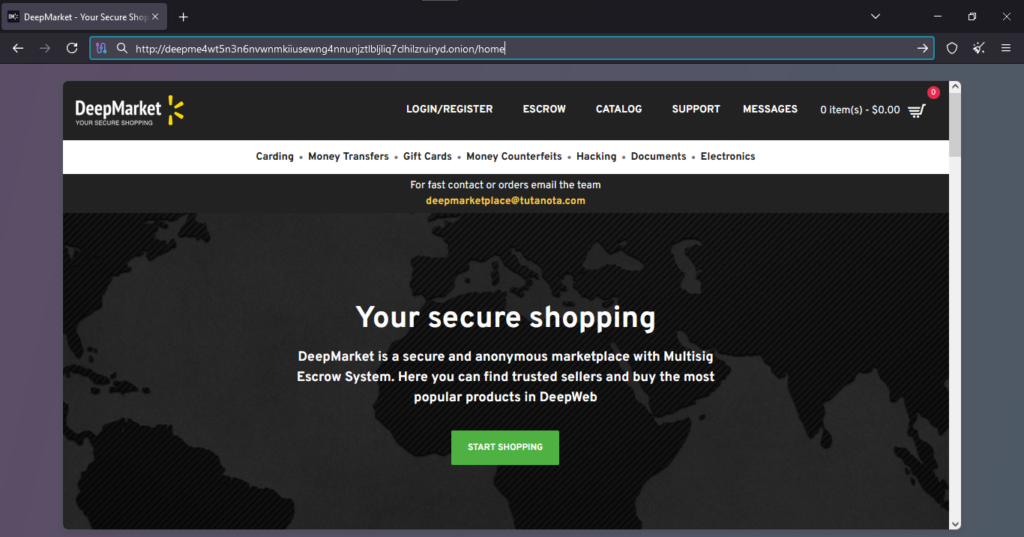Table of Contents
ToggleDeepMarket – TOR Scam Report (214)
Onion Link: http://deepme4wt5n3n6nvwnmkiiusewng4nnunjztlbljliq7clhilzruiryd.onion/home
Scam Report Date: 2025/02/18
Client Scam Report Breakdown
Original Report Summary:
The client reports a fraudulent experience where they attempted to make a purchase using Ethereum (ETH) as their payment method. According to the report, the transaction encountered an issue related to the fee, after which the marketplace or vendor provided no communication, support, or resolution. Despite expecting some form of assistance or at least acknowledgment of the issue, the client states that they received no response whatsoever. The total amount lost due to this scam was €260, which was supposedly held in escrow but never returned to them. The client concludes that both the vendor and the escrow system itself are fraudulent, suggesting that the marketplace may have been designed to deceive users into believing their funds were secure when, in reality, they were never intended to be released back to them.
Defining Key Terminology and Terms
To better understand the reported scam, it is essential to define several key terms. Ethereum (ETH) is a decentralized cryptocurrency used for online transactions, including purchases on marketplaces. However, ETH transactions require a gas fee, which is a small amount of cryptocurrency paid to process and validate transactions on the blockchain. If the gas fee is too low, the transaction can fail or become delayed, leading to issues where funds may not reach the recipient as intended. Escrow refers to a financial arrangement where a third party holds funds until certain conditions are met. In a legitimate system, escrow ensures buyer protection by preventing vendors from receiving payment until the product or service is confirmed as delivered. However, in this case, the client suggests that escrow itself was fraudulent, implying that the system was never designed to return funds in disputed transactions. No message or reply from the marketplace or vendor indicates a lack of customer support, which is a common red flag in online scams.
Scam Analysis and Conclusion
This report strongly suggests that the marketplace was engaged in a transaction manipulation scam, where funds sent via cryptocurrency were deliberately lost or misdirected due to hidden conditions or intentionally misleading instructions regarding the payment process. The lack of communication from the vendor or site administrators indicates either deliberate deception or abandonment, meaning the platform was never intended to provide customer support or assist users with disputes. The fact that the escrow system failed to return funds suggests that it may have been fake or controlled by scammers rather than a legitimate third party. A key tactic in such scams is exploiting cryptocurrency fees, where victims may be tricked into sending payments with improper gas fees, leading to stuck or incomplete transactions that cannot be refunded. Because crypto transactions are irreversible, victims have no recourse once funds are lost. To confirm whether this scam is widespread, further investigation could involve checking blockchain records to track similar disputed transactions, gathering reports from other users, and determining whether the marketplace has a history of fraudulent activity. Given these red flags, users should exercise extreme caution when dealing with escrow systems that lack transparency, particularly on marketplaces with no clear dispute resolution process.







